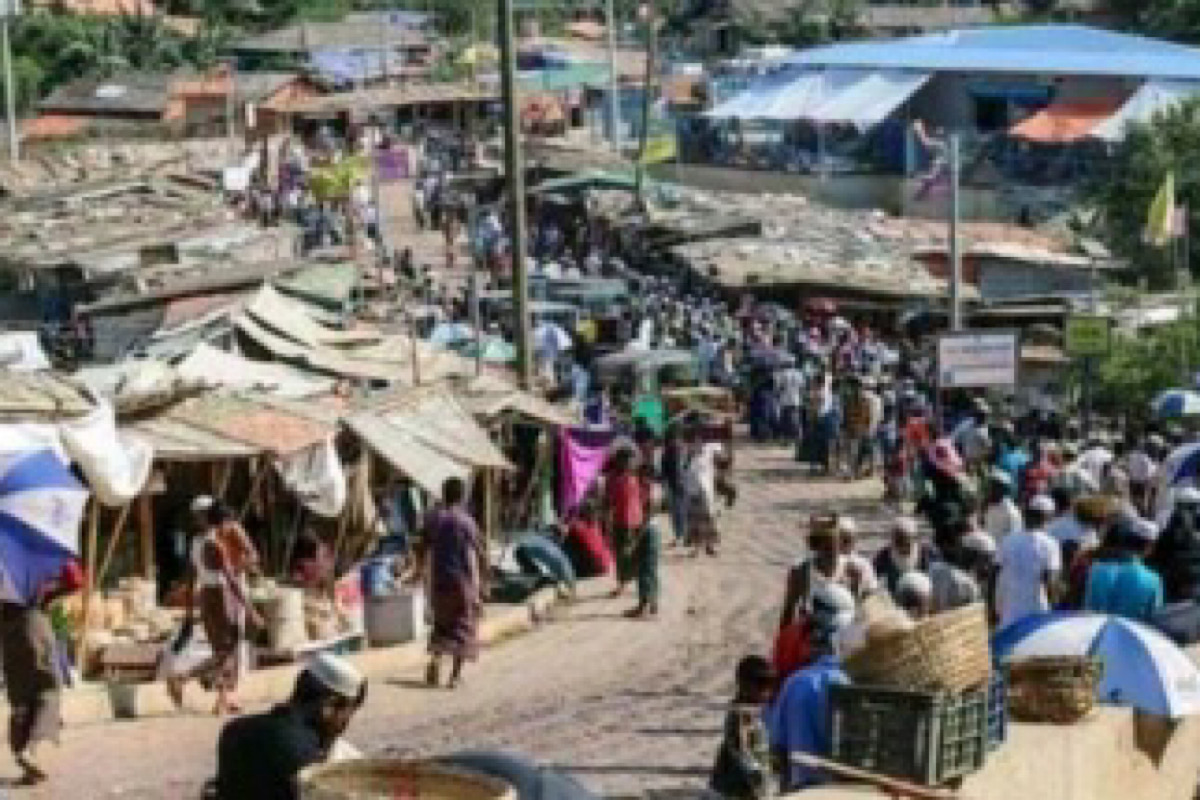Amid political slugfest on the issue of Rohingya settlers in Jammu and Kashmir, a two-member team of the United Nations High Commissioner for Refugees (UNHCR) on Wednesday met the refugees at a slum here to inquire about their living conditions. However, their request to meet the local police officers to discuss the issue was turned down, reports said.
The team has come here following reports of the administration snapping water and electric supply to a settlement of Rohingyas.
Advertisement
Senior Protection Officer, Tomoko Fukumura, along with Protection Associate Ragini Zutushi, met the Rohingya and some local residents in the Kiryani Talab area of Narwal, an official said.
The UNHCR is a United Nations agency mandated to aid and protect refugees, forcibly displaced communities, and stateless people, and to assist in their voluntary repatriation, local integration or resettlement to a third country. It is headquartered in Geneva, Switzerland, and has 20,305 staff working in 136 countries.
An official said the head of the team would return to Delhi this evening as their efforts to meet some police officials have failed.
On 7 December, Jammu and Kashmir Jal Shakti Minister Javed Ahmed Rana said the water supply won’t be snapped to the slums housing the
immigrants, pending a call from the Centre on their deportation.
His statement came after the Rohingya living on three plots of land in the Narwal area of Jammu claimed that their power and water supply was snapped recently despite them being registered with the UNHCR.
Two days later, Chief Minister Omar Abdullah said the Centre should decide the fate of the Rohingya population settled in Jammu, asserting that they could not be allowed to die of starvation or cold. “It is a humanitarian issue. The Central government should decide about them
(Rohingya). If they are to be sent back, do that. If you can, send them back. If you cannot send them back, we cannot starve them to death. They cannot be allowed to die of cold,” Omar told reporters.
“The Government of India should tell us what we have to do with them. As long as they are here, we need to take care of them,” he added.
Omar also asserted that they did not bring the Rohingya to Jammu. “They have been brought and settled here. If there is a change in policy at the Centre, take them back. As long as they are here, we cannot treat them like animals. They are humans and they should be treated as such,” he said.
The BJP, however, called the settlement of Rohingya and Bangladeshi nationals in Jammu a major “political conspiracy” and asked the Lt. Governor Manoj Sinha to order a CBI probe to identify those involved in bringing and settling them in the city.
Hitting out at the National Conference government over granting water and power connections to the settlers, BJP’s chief spokesman Sunil Sethi alleged it was being done to protect them as they belonged to a “particular community”. Some of these settlers also participated in the recent voting process, he said.
According to government data, more than 13,700 foreigners, most of them Rohingya and Bangladeshi nationals, are settled in Jammu and other districts of Jammu and Kashmir, where their population increased by over 6,000 between 2008 and 2016. During a verification drive in March 2021, police found more than 270 Rohingya, including women and children, living illegally in Jammu city and lodged them at a holding centre in Kathua.
India, not being a signatory to the 1951 United Nations Refugee Convention, views Rohingya as “illegal immigrants”. The convention outlines refugee rights and the legal obligations of countries to protect them.











